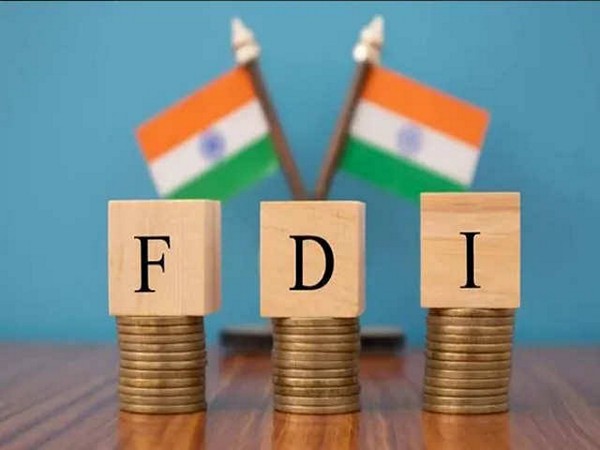India has achieved a significant milestone in its economic journey, with gross foreign direct investment (FDI) inflows reaching an impressive USD 1 trillion since April 2000. The Ministry of Commerce and Industry stated that a nearly 26 per cent rise in FDI to USD 42.1 billion during the first half of the current fiscal year 2024-25 has contributed to this achievement. This growth reflects India’s increasing appeal as a global investment destination, with initiatives like ‘Make in India’, liberalized sectoral policies, and the Goods and Services Tax (GST) enhancing investor confidence.
Over the last decade (April 2014 to September 2024), total FDI inflows amounted to USD 709.84 billion, accounting for 68.69 per cent of the overall FDI inflow in the past 24 years. The government has implemented an investor-friendly policy to promote FDI, allowing most sectors, except certain strategically important sectors, to be open for 100 per cent FDI under the automatic route. Additionally, to simplify tax compliance for startups and foreign investors, the Income Tax Act, 1961 was amended in 2024 to abolish angel tax and reduce the income tax rate chargeable on the income of a foreign company.
As India aligns with global economic trends, the government believes it is well-positioned to further strengthen its role on the global stage, fostering sustainable growth and development. FDI has played a transformative role in India’s development by providing significant non-debt financial resources, fostering technology transfers, and creating employment opportunities. Competitive labour costs and strategic incentives continue to attract multinational corporations to invest in India, contributing to the country’s economic growth.
The impressive increase in FDI inflows during the first half of the current fiscal year is a testament to India’s growing appeal as an investment destination. Initiatives such as ‘Make in India’ and liberalized sectoral policies have contributed to this growth, along with the implementation of the Goods and Services Tax (GST). With these measures in place, investor confidence in India has been boosted, leading to the attraction of multinational corporations looking to capitalize on competitive labour costs and strategic incentives.
The government’s commitment to further promoting FDI is evident in its investor-friendly policies, which allow for most sectors to be open for 100 per cent FDI under the automatic route. By simplifying tax compliance for startups and foreign investors through amendments to the Income Tax Act, the government aims to create a conducive environment for foreign investment in India. With these measures in place, India is poised to enhance its role on the global stage and drive sustainable growth and development in the years to come.
In conclusion, India’s achievement of reaching USD 1 trillion in gross FDI inflows since April 2000 is a significant milestone in its economic journey. The country’s appeal as a global investment destination has been bolstered by initiatives like ‘Make in India’, liberalized sectoral policies, and the implementation of the GST. With a conducive investor-friendly policy in place and ongoing efforts to simplify tax compliance for startups and foreign investors, India is well-positioned to attract more FDI and drive sustainable growth and development in the future.











